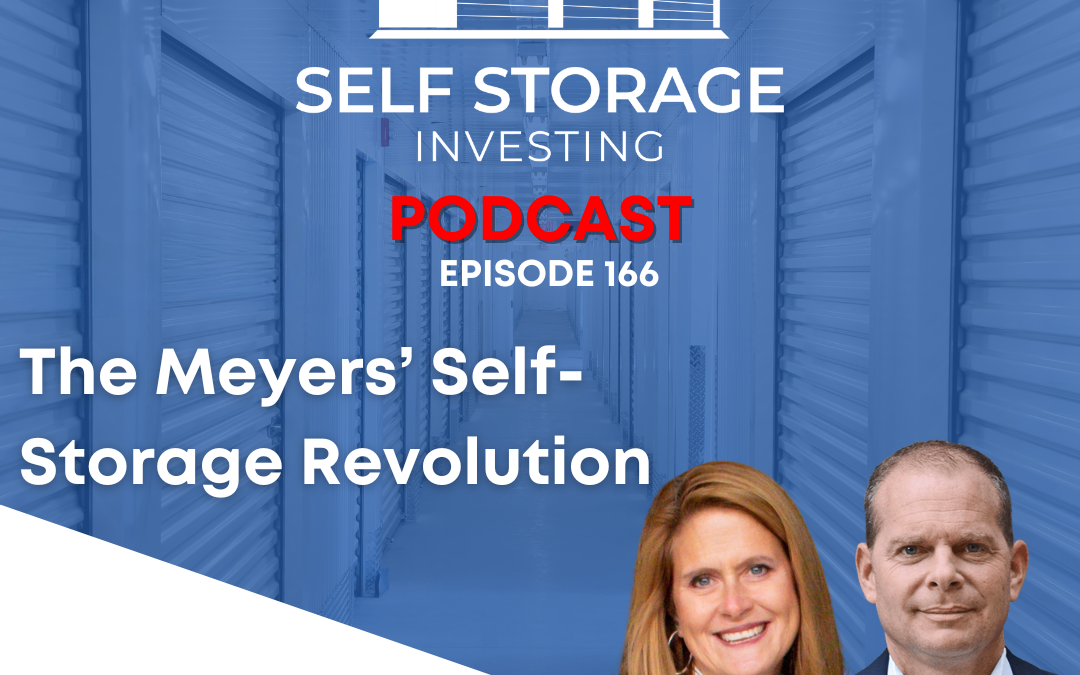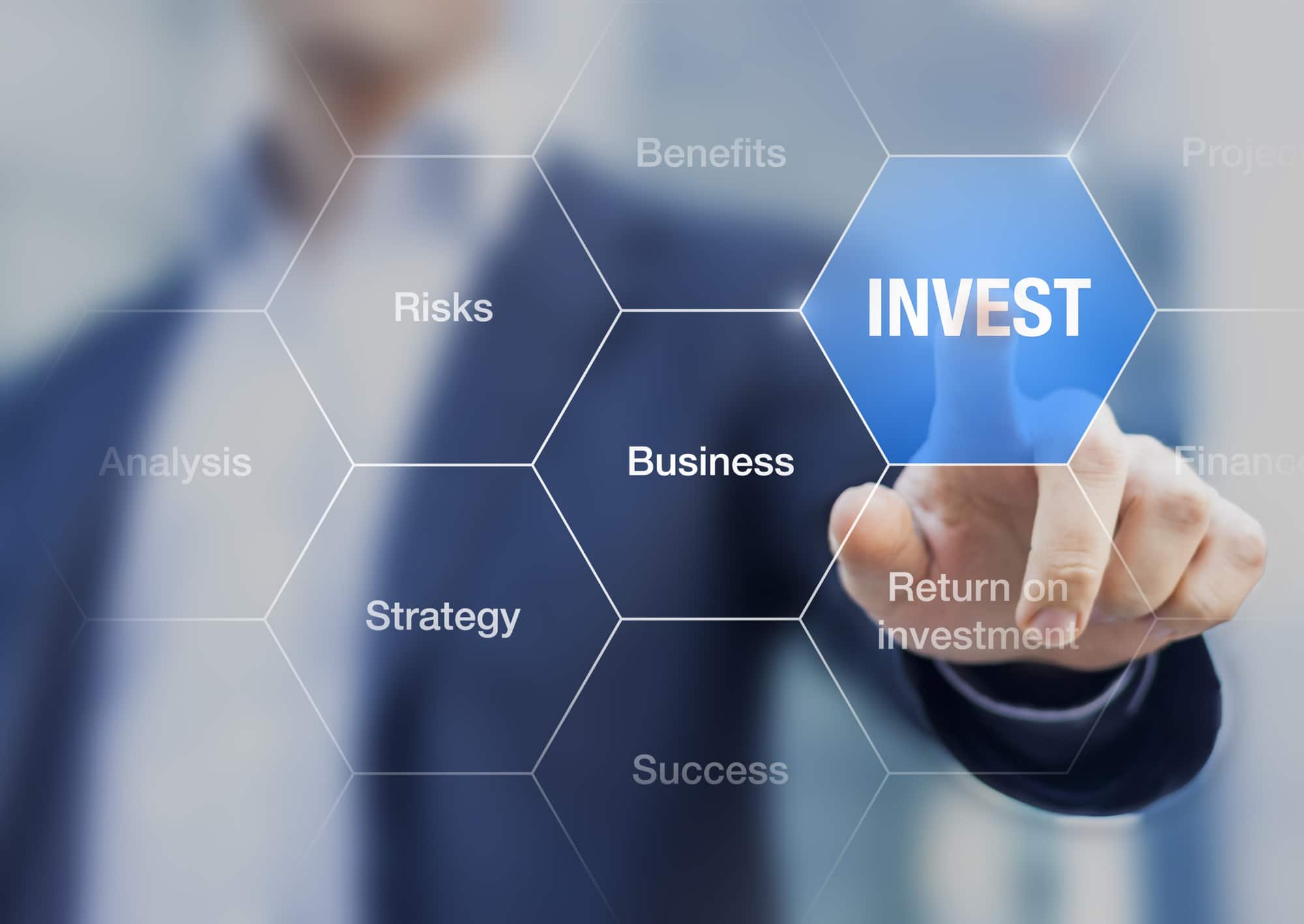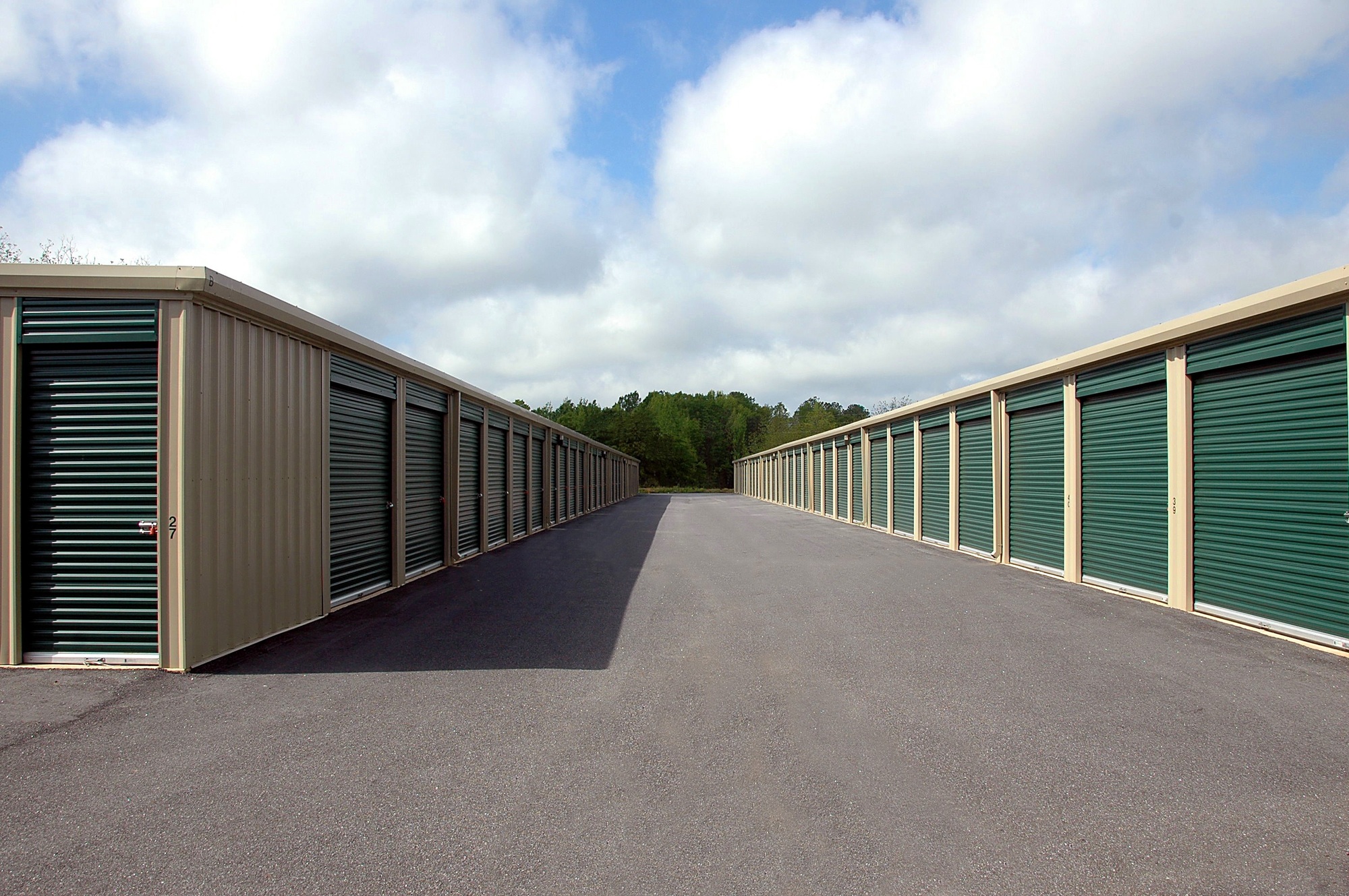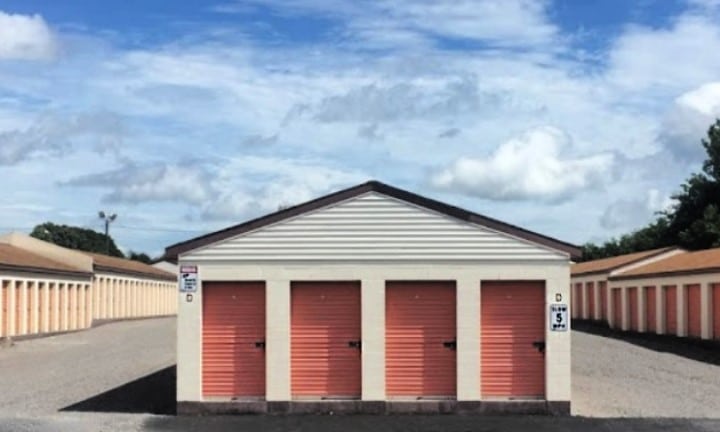The revisions to the SBA rules make it easier for borrowers to meet the 10% equity requirement for loans, allowing seller debt to count towards the full 10% equity injection.
Other changes include the acceptance of Home Equity Line of Credit (HELOC) or cash-out refinance of real property as equity, and the simplification of debt refinance.
And a newly implemented rule limits loan terms for partner buyouts to 10 years.
WHAT TO LISTEN FOR
5:18 Use of HELOC and Cash-out Refinance for Equity
6:30 Clarification of SBA 7(a) vs. 504 Loans
17:40 SBA’s New 10-year Loan Term Limit
26:21 REITs Management Approval
Leave a positive rating for this podcast with one click
CONNECT WITH GUEST ANNE MINO
Website | LinkedIn | Email
CONNECT WITH US
Website | You Tube | Facebook | X | LinkedIn | Instagram
The transformative journey of self-storage investing from chaos to calm.
Scott and Christina Meyers share a raw and personal narrative of their entrepreneurial journey on the Self-Storage Podcast.
From their early struggles with single-family rentals to the liberating shift to self-storage, they reflect on the business’s challenges and the freedom it ultimately provided their family. The Meyers’ discuss their first self-storage deal, the growth of their business, and the deep connections formed within the industry.
They emphasize how self-storage has enabled a flexible family lifestyle, including homeschooling their children and participating in mission trips, highlighting the stark contrast to their previous life consumed by demanding property management.
WHAT TO LISTEN FOR
2:04 – The Partnership Dynamic
4:57 – The Turning Point to Self-Storage
13:30 – Family Perceptions
26:11 – Lessons from Recessions
Leave a positive rating for this podcast with one click
GUEST: CHRISTINA MEYERS
Website | You Tube| Facebook| X | LinkedIn | Instagram
CONNECT WITH US
Website | You Tube | Facebook | X | LinkedIn | Instagram
Episode Transcript
Christina Meyers (00:00):
Wow. They spend a lot of time together. They have a really connected family, and there were things that I think we were able to do because of the time we were able to spend together.
Intro (00:17):
This is the Self- Storage Podcast where we share the knowledge and skills from the industry’s leading investors, developers, and operators to help you launch and grow your Self- storage business. Your host, Scott Myers, over the past 18 years has acquired, developed, converted and syndicated nearly 5 million square feet of Self- storage nationwide with the help of his incredible team@self-storageinvesting.com, who has helped thousands of people achieve greatness in Self- storage.
Scott Meyers (00:53):
Hello everyone, and welcome back to the Self- Storage Podcast. I’m your host at Scott Myers, and now we have on the call today a very, very special guest, the most special guest that is Christina Myers, my wife, who is also the co-founder of our businesses. And we thought it would be good for you to get an understanding of not only the brains behind the business, but also the partnership that we have created and how we’ve been on our journey over the past 20 plus years in self storage. We’re going to do a two-part series where we’re going to talk to you about our journey from our first self storage deal through the ups and downs, and look into the future with you and what we have as well and where we see storage heading. I don’t know that there’s really a goal here, but we just wanted to give you an inside look into, well, I guess the human side behind these self storage businesses and perhaps inspire you to come along out with us. So whether you are looking to break into the business to scale your portfolio of properties or add some passive income or just learn how you can join us in our conscious capitalism efforts in our house building and mission trips, we would love to have you join us at some point during that, which is a huge part of what we do. And so we’re going to dive into that as well. So with that, I want to introduce you to my wife, Christina Myers.
Christina Meyers (02:04):
Hi. Thank you.
Scott Meyers (02:06):
So do I interview you or do we have a conversation here?
Christina Meyers (02:10):
I don’t know.
Scott Meyers (02:12):
Alright, so I would ask you, people will probably wonder how we met and wonder if it was love at first sight, and of course it was on this end. So why don’t you tell your
Christina Meyers (02:22):
Side of the story? My story looks different. I’m sorry, honey. It does. So we met from my boss at the time and his wife worked with Scott. And so I liked my job and she kept saying, I have somebody I want to fix you up with. And I thought, oh, that sounds really difficult when I like my job. What if it doesn’t work out? And so I put it off for a long time and then we ended up at the same party, open house at their house. And so yeah, we walked in and I walked in and she said, oh, good, Scott’s going to be here in just few minutes. And I thought, oh, I think I’m going to leave in just a few minutes and then it won’t be uncomfortable. And I didn’t end up leaving and we hit it off and we were engaged a few months later. So it was definitely the right move. But yes, it was wonderful.
Scott Meyers (03:16):
So what Christina didn’t understand at the time is that I was in real estate already, and so working in single family houses, and so we talked a little bit about that then it wasn’t until she became really comfortable or we became really comfortable with each other before I then took her over for a real fun weekend of cleaning toilets and painting and doing all the things that the beginning landlords and first time single family investors do, and your first handful of houses until a few months later she said, yeah, this is no fun. I don’t think I want to go with you on the weekends anymore. I’ll be happy to have you take me out for dinner tonight when you’re done. But this is not what I had bargained for. But very thankful that along the way the roles changed and reversed. And so for all the messes that I created, Christina’s role was to put processes in place and clean those up and really keep things on track and really keep, I think the wheels on the bus at times when they, they’re about to fall off.
Christina Meyers (04:15):
I would say even more to that. It wasn’t, but a few weeks into our dating, maybe a week or two, I don’t even know that he said, I’ve got to spend a Saturday working on a house. And so I said, welcome with you. And it was fun at first, and we did that actually for a very long time into our marriage. And we did that for a very long time and we both worked corporate America all week and then would spend every Saturday all day at a house and then Sunday we’d go to church and Sunday afternoon we’d go working on the house again and sometimes in the evenings during the week. So it was a lot for sure.
Scott Meyers (04:57):
Well thankful. Then several years later after we didn’t find the cashflow and the freedom that we thought we would have in our single family rental portfolio, then we got into apartments and thinking economies of scale would’ve fixed this. And lo and behold, all it did was just buy us more hassles of tenants and toilets and trash. And then at the time I was president of the central Indiana Real Estate Investors Association, and Christina was coming to the meetings and she would attend the round tables and we would sit at the landlord or the property management tables. And this primarily what she was doing at the time then in our business and that there was a couple, they were just getting into self storage and they were kind of sitting there with smiles on their faces while the rest of us were talking about all the challenges and problems that we had in our single family rentals in our apartments.
Scott Meyers (05:44):
And they just sat there with these smug grins on their faces. And finally we just asked, Hey, you haven’t said much tonight. What are you grinning about? They said, well, we don’t have those hassles any longer because we sold all our single family rentals and we bought our first storage facility. And I think I felt Christina give me a nudge as to maybe this is something we should look into. And on the ride home she brought this up and said, Hey, I think you should look into this self-storage thing. And I thought, well, self-storage, you mean those garages? We are sophisticated investors. We have mini
Christina Meyers (06:19):
Barns.
Scott Meyers (06:20):
Yeah, these mini barns we’re climbing up the real estate ladder by getting into multifamily and perhaps getting into office buildings and others. Why would we go backwards and looking at these metal boxes on concrete slabs? But it wasn’t until several years later when all of a sudden there was too much month left at the end of the money in our single family rental portfolio in our apartments we’re not only producing the income that we had, but it was sucking up all our savings as we were trying to turn this portfolio around during the recession of 2000 in the year 2000. And then at that point, Christina said again, said, Hey, you’ve got one of two options, you or we are going to need to go back to work or you need to figure this another form of real estate to get involved in and maybe it’s time to look into self storage again. And so I did. And that’s when we did a deeper dive only to find out that those metal boxes on concrete slabs were the best performing asset class in all of real estate. And so the more we looked into it, the more we learned about it, the more our eyes were opened and we truly saw the light and bought our first cell storage facility, and then we began to sell all the rest of our houses in our apartments after that.
Christina Meyers (07:34):
I would say too, I got asked very early on what changed? What did self storage give you or what changed in your life that I was like, time without a doubt. The one thing that self-storage gave me was time. We had little kids and at the time I was taking our little kids to when we would get ready to sell an apartment building, I would take the kids with me to an apartment complex to work and we would just sit there in the office and we would work and lease and get it to the place where we could sell it because nobody takes care of it like the owner does. And so we spent a lot of time doing that. And I think the one thing for sure, when we moved to self storage, it just bought us our time back. It bought us our time back as a family. It bought us our time back, me individually, Scott, to be able to spend more time with the kids. It just bought us time.
Scott Meyers (08:31):
And that was the ultimate goal in the first place when we got into real estate. And that was truly our moonshot, is we wanted to be able to raise our kids and spend time with them and that we were homeschooling them at the time and we wanted to be able to take off and go on vacations. We wanted to go on to mission trips and really run our own schedule and be able to have the freedom to do what we wanted when we wanted and who we wanted to do that with. And unfortunately with the houses and the apartments, that did not happen. It wasn’t until we got into some storage that asset class, this asset class really allowed that to happen.
Christina Meyers (09:06):
I remember when Scott decided he was going to quit his corporate America job and he was going to do single family houses. I remember thinking, that sounds great. I think you could take Fridays off and you could work four days a week and then we could have a long weekend as a family every week. That would be great. And it went from that never happening to many times working Saturday as well, and sometimes people calling us in the evening. So the switch from houses and apartments at the time to storage was a life changer for us.
Scott Meyers (09:46):
So along the way, Christina had to step into the management role of our apartments as we were turning this portfolio around and selling those all off and getting into self storage. And so she set up all the processes that we put in place from an operation standpoint, but then also was wearing many hats also involved in the bookkeeping and financing and working with the CPAs and our tax preparers as well. And became really, I would say a master, at least for our business in terms of what tax law looked like for a real estate business. And so through the years, she still wears many hats and gets involved in many projects, although not as she used to be. But that is the one role that she has kept and still continues to do to this day.
Christina Meyers (10:36):
And I’ve always kept my eye on financially what our businesses were doing and made sure that that was the piece years early on that Scott said, I don’t want to do this piece. And so I just dug in, I learned with the CPA and just began to little by little figure out what worked for us. And so that’s still where I am today, although we have staff that handles a lot of it, but I oversee a lot of that still. So
Scott Meyers (11:04):
At the time when we decided to go into real estate, as Christina mentioned, we thought things were going to look a bit different. And on those Fridays I thought, yeah, I’m going to go out and get a set of custom golf clubs and I’m going to be able to golf in the afternoon, at least nine holes, and then come home and spend time with the family. And as Christina mentioned, that did not happen. And then as we were telling our family that this is what we planned to do, this was, let’s say it just wasn’t met with a whole lot of cheering, if you will, and a whole lot of, yay, go get ’em. It was more of a wait a minute, I think Christina’s mom to this day still thinks I’m unemployed and then I can’t find a job some 30 years later after getting involved in real estate and would come over anytime during the week and find me in the home office working. And it was just like, oh, you’re not working today. It’s like, yeah, I’m working. It’s just a little different that way about working. But how would you view the way the family looked at and still looks at what we do to this day with both the investing business and our education business?
Christina Meyers (12:05):
We both came from families that were hardworking people, but they also were not entrepreneurs. So the understanding of what an entrepreneur is was very foreign to them. And so I think that was a hard piece. I think another hard piece is that when Scott decided, when he first decided that he was leading corporate America, I think that was probably more eyeopening for the family because it was the same time that we also announced that we were pregnant with our first child. So that came as a shock to everybody. Oh, Scott’s quitting his job and you’re pregnant. That’s great. So I think that came probably as more of a shock, but as years went on, I think they grew to understand what we did and little by little our lives looked different. And then when we began to homeschool the kids, it gave us the freedom. Then as Scott traveled or if he went to speak somewhere, he was going to look at a property and we were able to go along. The kids were able to go along with us. And so that just became a huge blessing. And I think our families began to see that. But certainly at first it was a shock to see that we were both at home basically not working as far as any was concerned.
Scott Meyers (13:30):
And I think to this day, I think you give my mom a little more credit, I think until she went home to be with the Lord that she still didn’t have a clue as to what I did for a living. But that’s all right. And go ahead.
Christina Meyers (13:43):
She knew that we could come home and visit early on a Friday afternoon Sundays. She did know that later on.
Scott Meyers (13:50):
Yeah, can’t say that she understood it or thought that I was missing something, but nevertheless. So of course, I think many people out there can relate to this as well as there’s always going to be naysayers too. And it’s interesting is that for those that have come to our academies, we say that I’m a big follower of Jim Rohn and he talks about taking out the weeds in the garden and meaning those naysayers in your life and getting those people out of your life that really are trying to keep you down. Because many times the reasons that they are is because it makes ’em feel bad about themselves if they’re not reaching out and either starting or launching a business on their own or feeling that they should be at a different level, whether it be an income or status or what have you. And so there was certainly a little bit of that along the way, and our friend group changed along the way as well. And not that we left everybody behind or that changed dramatically, but I think we found that we were getting involved in other entrepreneurial groups that were helping us to grow and surrounding ourselves with folks that just had a different mindset. They shared the same mindset that we had and that was the fuel that allowed us to be able to grow and to learn and to thrive. So what do you remember from those days about the folks that maybe looked at what we were doing a little bit with a raised eyebrow?
Christina Meyers (15:07):
Yeah, I think the first raised eyebrow came in self storage. That’s interesting. It became in that, and then I think what they saw, they began to see in some of our friend groups of wow, they spend a lot of time together. They have a really connected family. And there were things that I think we were able to do because of the time we were able to spend together that made just such a huge difference. But we did began as the family began traveling with Scott, we also spent a lot of time with other self storage folks. And I still look back to so many of the early on academies and masterminds that we have done and those people that when I see them, I mean my heart just leaps. They are like family to us and they know our kids, they ask about the kids, and it’s just such a beautiful memory for us. It became our extended family in so many ways. And still to this day, they’ll ask about the kids. And we have all adult kids now, so yeah, those are good.
Scott Meyers (16:17):
So even early on, when we begin to take a deep dive into so storage, when we literally made the decision to go into storage and sell everything else off that weekend, there was a storage association show that was up in Chicago that I drove to. And what I found that was so different is that having been in single family and multifamily and really only investing in Indianapolis, even within my own investment group that I ran, everybody really held their cards close to their chest and did not want to share a lot of information. And I guess understandably so if you’re operating in the same market. And so people would talk about their deals or usually brag about the deals that went really well or maybe stretch the facts and the truths about how well they were doing or how good their deals were. But there wasn’t a lot of sharing of the business plans and the blocking and tackling and a lot of their contacts even or the Rolodex.
Scott Meyers (17:11):
It wasn’t a general feel for that. And then I noticed some of the other events that I went to nationwide there, other seminars and different gatherings, it was the same there as well. But when I went to that first self storage association meeting is completely different. And I think partly because of the asset class and that we really don’t compete with folks unless they’re within five to seven miles of our own trade area. That is the competition circle, if you will, is your trade area is that that small five to seven mile radius. So most of the folks will never stumble upon each other. And so everybody was free to share their best business practices and really just had an air of wanting to help each other and lend a hand and pull some folks up and share what they had. And 95 to 98%, their secret sauce was really only two, three, 5% that was different than what was out there in the marketplace.
Scott Meyers (18:00):
And then as we launched our education business, that came about after we had began doing the same thing in our own in a real estate after we began doing our workshops and our own real estate investment group here in Indianapolis. Shortly after that, we launched our own education business to begin then teaching people nationwide how to invest in real estate, as Christina mentioned, that have come to our academies through the years. We launched that in 2007, Christina and I set up a booth at the inside self storage trade show with high hopes and a home study system that we were going to set the world on fire. And I think we maybe had two or three people that bought our home study system because everybody there was already an expert, even though they weren’t in the business yet. And that was kind of an awakening for us. But nevertheless, after that, the business just absolutely took off. And yeah, it’s been an incredible run since 2007 when we launched the Self Storage Academy and then began teaching people through our home study systems and our live events and coaching and mentoring that these folks that we’ve gone through business life with really we’ve gone through personal life with as well. And to see them now at the trade shows or to come back to our academies or our mastermind, it is, it’s not just a business family, it’s become more like an extended family.
Christina Meyers (19:19):
I remember too in different circles that we were in, whether it was the landlord, which is the Indianapolis Real Estate Association here, or other things too. I remember the difference in people and what I saw, and I still see it in circles when we’re in circles with single family people, but I definitely remember then that the difference in those circles versus a self storage trade show of some sort, the self storage people were happier. They were just more peaceful. They were happier. They were just in a place where, I don’t know, I remember being that place of the stressed single family homeowner and then watching those people do life. And so that’s been just also a blessing, I think, too.
Scott Meyers (20:07):
Well, we’ve talked about all the great things and the blessings that we’ve had along the way. So what were some of the most challenging times or pieces along the way, whether it be from the beginning of our real estate career or in the beginning of self storage?
Christina Meyers (20:21):
Well, certainly the beginning of our real estate career was hard, and you tell that story better than I do, but when we hit the time around 2008 and all of that that was happening, it certainly got tough financially. It got really, really tough. And I’m grateful for the blessings that we had and the way that God just guided us through that. But it was a rough time during that, and that was still in the single family house season, so that was hard.
Scott Meyers (20:56):
Yeah, you learn a lot and there’s some scar tissue from the challenges that we had back in 2000 when we had almost all single family homes and apartments. And that is a time when the Community Reinvestment Act was put in place, and basically the programs which allowed anybody who could fog a mirror after they walked into the bank could get a loan. And so they did. This is the best time in American history when a person could buy a house. And so who could blame ’em? So our tenants left in droves. So then fast forward to 2008, and we had this machine that was rolling along and a pipeline of facilities that we were buying where we were getting to get into some development by way of expansion. And then of course, we all know what happened when Lehman Brothers fell and all that funding shut down and our expansion and anything that we had in place for growth and even to sustain had been swept out from underneath us.
Scott Meyers (21:49):
So fortunately we were in self storage at the time, and it does so well during every recession. However, it was a difficult time for anybody that was involved in real estate if you didn’t see it coming when the music stops and you’re playing musical chairs and moving money around and matching it up with properties, that was a challenge. But that was a lesson that we learned through that time is that you can’t have too much cash. There’s no such thing as having too much cash. And we vowed at that point that we were going to be prepared for the next recession, not only to weather the storm, but also to be able to take advantage of what the market brings, which is there’s a whole lot of folks that couldn’t refinance that had abandoned development projects. And we watched our competitors that were very well healed, had great lending relationships still and had a lot of cash. They were able to go out and participate in those projects where other folks couldn’t move forward. And so systematically we’d begin to increase our private equity group. And so during those challenging times and the two recessions or any other time, do you ever feel like giving up?
Christina Meyers (22:53):
Certainly early on when the kids were little, and we were that post 2000 era and I mean over and over and over again, wanted to give up for sure. And it just was so much stress on us and on our marriage and on our family, and that was, yeah, I certainly wanted to give up during that time. I think things turned, once storage came around, I feel like our family got to be more involved. We weren’t without you all the time, and so there was just a lot more pieces that fit together at that point in time. And so early on though, definitely there came a time when we were rehabbing houses and we might’ve had one child, it might’ve been prior to the one, I can’t remember exactly at the point that I just basically collapsed and said, I can’t do it anymore. I can’t do this seven days a week and five in corporate America and two working on houses and something’s got to give. We got to do something different. It’s too much. And Scott took it on full time at that point in time, but then we didn’t have income from corporate America any longer. And then that was, so there came a time after that financially things got hard, and I certainly wanted to give up.
Scott Meyers (24:25):
One of the things that I was shortsighted in thinking, first of all, long on optimism and hope and knowing that this was going to work out, but short on perhaps all of the planning that goes into lodging a business and going out on your own, we realize how many of those expenses, just living expenses and everything that goes into the benefits of working for corporate America and having a W2 and having insurance and other things taken care of. And we recognize that, boy, there’s a whole lot of expenses, no work car allowance and having the expense account, both of us being in sales in corporate America, that went away. And so going out to eat at nice restaurants, well, it’s kind of a luxury now. It’s no longer just a foregone conclusion. And so there was a lot that we didn’t really anticipate, I didn’t really anticipate that were a budget for at the time.
Scott Meyers (25:15):
And so certainly put a strain on the business in the beginning. And being an entrepreneur is, well, there’s a reason why, depending on what stat you look at, 80% of all business startups fail within the first five years. And then I think out of those that survive, I think another 80% fail within a couple of years after that, or you look up the stats, but it’s a tough road. It’s an uphill battle. And so not patting ourselves on the back, it’s only by the grace of God that this all continued to work out because we stared into the abyss several times and came very, very close to having to give it all up and going back to work for somebody else instead of moving on our own. But yeah, fortunately several good moves and a plethora of folks that were brought into our lives and a lot of doors opened by God and him shutting others that we could have walked into in many troubles, which would’ve created many, many challenges. We avoided disaster to land to the place where we are now.
Christina Meyers (26:11):
I remember a funny story as you’re talking, that our Cobra Insurance ran out by the time we got pregnant with our second child, and Scott had quit his job, obviously, and we had Cobra for however long, and then it ran out. And so with our second child, we didn’t realize that your insurance doesn’t automatically cover maternity costs and all of that. We just assumed it did. And it doesn’t unless you’ve planned way ahead. And we had not planned way ahead to purchase the maternity insurance. So we ended up putting our second baby on a payment plan with the hospital in order to finally pay him off and go, he’s ours. We did it. It was tough times starting a business and getting that going.
Scott Meyers (27:07):
So looking back at the first deal when we began to get into self storage, tell me your recollection of that first project and the first property in our partnership.
Christina Meyers (27:17):
Yeah, was it’s a good deal that we found. I remember wanting to learn. I always, I am just a learner. I really enjoy that part. And so I remember at one point in time our manager, our first property, our manager got sick and I said, I just go work. I used to deal with apartments, I could do it again. And so I would go work at the office. She was out with, I dunno something, a surgery or something for a few weeks, but it was a really good time of learning the business. I do better when I learn. And so that was, Scott has always handled the investment piece and what that part looks like. I still can only speak to that at a 30,000 foot view, but the hands-on piece, the property management and all of that, that was good for me to learn. And we worked with, at that point in time, a couple of vendors that were fairly new in the market and now are very well established in the self storage market. But that was good. We learned a lot. I got to be there and hands-on watching what’s happening, meeting customers, asking what customers needed and how we can make that better. And that was just a really good tie with that first facility.
Scott Meyers (28:35):
As much as Christina maybe didn’t like it in the beginning that she got stuck with the property management or any other project that I handed draw off to her, she did just an incredible job with it. She was a perfect person for those roles, that role and those tasks. And so then when it came into the self storage side, it was like learning something new. And so taking that skillset from the residential side and then moving into self storage and learning, but then also seeing ways that we could perfect what we were doing. And I think it’s okay to say that Robert Cheaty with OpenTech Alliance did come out and visit our site when we put in literally one of the first kiosks in the country. And this was back when Robert was going flying around the country and selling the open tech insomniac kiosk.
Scott Meyers (29:18):
And we are very thankful for that partnership and that friendship that continues on to this day. And we still look back on those days and when I see him at the shows and his hair’s gray and I’ve lost virtually all of mine, but we’ve had a good run in the business and all these folks, these vendors that we’ve grown up with in this industry that have just become dear friends to look back on where we started and to celebrate where the industry has been as well, it’s just been incredible. I look back at that first deal that once again was, oh gosh, it was cookie cutter and it was not cookie cutter, it was textbook. And that’s exactly what we were looking for. And what we then eventually began to teach people what to go out and look for, it was a partnership that had gone bad.
Scott Meyers (30:04):
They were getting a divorce. These partners were then doing their best because they were so disgusted with each other that they were driving the business into the ground just so that they could stick it to the other partner, which just as a little odd for us, but we were the benefactors of that because the building and the facility and the business was still intact and worth way more than what they were selling it to us for. And the upside was absolutely incredible. And we inherited a great manager and expansion, the ability to buy a piece of land next door and expand. So it ticked all the boxes, everything that we wanted. We bought it at a strong, strong cap rate, strong financing package on it. We had two partners that we entered into this project with, which helped at the time because we weren’t in self storage, even though we had taken out commercial loans in multifamily, this was our first venture into this asset class.
Scott Meyers (30:55):
And so it helped that the lender saw that we had four guarantors on the hook for this. And it was just a great partnership and it was a great first facility and a way for us to be able to break into the business. I was throwing off $10,000 a month in cash the day that we walked in, and then we continued to move on from there as we leased it back up again, raised rates and then expanded. And so that was the springboard for us to then ultimately sell our partnership interest to those partners and then move on and buy additional facilities for ourselves and really, really never looked back.
Christina Meyers (31:28):
Those were good memories. We were really involved in that facility, so we not only got the investment piece of it, but we got the hands-on piece, so that was good.
Scott Meyers (31:38):
So from that first facility to where we are now 20 years later in self storage and almost 5 million square feet and almost 28,000 units, what would you have told Scott and Christina back then now that we are at the place that we are now and all the experiences and the things that we’ve learned along the way?
Christina Meyers (31:54):
Oh gosh, I think we needed to relax a little bit more. I think being assured ourselves that it was the right decision that walking away from we knew a lot about houses and apartments and rehab. We knew a lot and is as painful as it was, the change of something new and making sure, should we just be doing this? Is there something else that we should do? Should we be doing this with a partner? Should we not be doing this with a partner? I think there’s so many pieces of that. I think we just probably needed to relax a little bit.
Christina Meyers (32:31):
And I think we had the assurance of, I mean, God certainly walked us the hard times of single family houses. And so I think we walked into that knowing that that would happen if it needed to, God would take care of us again. And so that was a good assurance to have. But there was still some of that fear being, is this going to end up being a hard thing? And so I think maybe to not be so concerned about the future and the outcome and just take the blessing we had and make sure we invested in our family, which we did. But I still think those times that we were a little scared, should we jump in? Should we handle it? Should we let somebody else handle it? Should we hire a third party? Should we not? Some of those things that we just probably needed to relax a little bit. What about you?
Scott Meyers (33:25):
Yeah, certainly. When Bill asked me, what regrets did you have or what are the things that you wish you could turn the clock back? And I never really feel that anybody could ever honestly say that, oh, I don’t have any regrets. And I never looked back on that because certainly there’s some moves, bad moves along the way and some bad partnerships and things that I got us into because I was on a growth pattern, on a growth path. And so I would overlook some of the maybe the red flags and some of the warning signs and some partners perhaps in some projects that for the sake of growth, I overlook those. And that has been a blind spot of mine through the years, but I’ve become a little bit better as our now former lead pastor has said, you just know when you’re knower. And so instead of pushing through when you feel that anxiety and something’s wrong, then we should step back and take a step back.
Scott Meyers (34:19):
And I think many times I didn’t do that. And yeah, there are many of those situations in which you could look back and say, gosh, I should have done that. And that truly is just hindsight. That is Monday morning quarterback. It’s really easy to say. And so from those, I can’t say that I do regret going through those because it is, it’s through the challenges, through the fire that we are forged, and that’s what has made us stronger and allows us to step into the next deal eyes wide open and learning from any mistakes that we’ve had or just seeing how some of these things played out. And I think not only have we as a business benefited from that, but our investors have as well. There’s a lot to be said when I used to look at the old gray-haired folks that have done very, very well in real estate and think, well, that’s great.
Scott Meyers (35:03):
They did it back in their day, but they can’t do it now. These dinosaurs don’t know what it’s like and watch me watch and see how it’s done and how fast we go. And only to realize that they weren’t going so fast just because they were slowing down in their years. They weren’t going so fast because they weren’t getting into bad deals and they had a cadence and they had a rhythm and they were selective about the deals that they had done. And I learned a lot from those mentors that spoken to my life and that I sought out and talked about mainly what it looks like to create a partnership in the beginning where I was very averse to that thinking, I just want to do this all on my own until many of these folks said, well, I would never be where I am right now if it weren’t for taking on partners who had a complimentary skillset that I didn’t possess that they were really good at, that I worked well with and that I worked well with.
Scott Meyers (35:53):
And it was just a good business working relationship as well. And so I think through the years those are, I think maybe just not wanting to grow for the sake of growth and perhaps wanting to do it all. I dunno if that was out of pride or wanting to take the glory, but recognizing that you need a group of mentors, you need a group of people around you. You need good partners and projects, and you can’t do this all on its own. It is a simple, predictable business model. Those that have come through our academies and our master run, I’ve heard her say that over and over again, but it doesn’t mean it’s an easy business and there’s challenges along the way and those challenges become easier when you have somebody else who’s been through those challenges before to be able to guide you through that, or at least give you suggestions as to how to navigate these things.
Scott Meyers (36:38):
And then also to share their Rolodex and their wisdom. So that’s why we created our mastermind is because there’s usually no threat of me being the smartest person in the room when I walk into it in terms of self storage. And I’m thankful for that, and that’s why we created the Mastermind is so that I could fill a room with a whole bunch of folks that are a lot smarter than me, that are moving fast, that are also very deliberate and intentional so that we all can move forward together without making mistakes and having each other’s back and being able to share Rolodexes in this environment. As you mentioned, Christina, which is so giving and so open and so sharing.
Christina Meyers (37:12):
And I think so many of those people that we’ve run into through the years. I think looking back, I would’ve leaned in even a little bit more in some of those situations because they certainly, not only did some of those people become like family to us, but there were a lot of good questions and a lot of areas where just by listening to someone else ask the questions, we learned a lot. We learned a lot. We weren’t by any means experts in any of those situations. I think another thing that perhaps I would say to us when we were younger and kind of going through this process is there’s so many people, I mean, I say that they become family in so many of our circles, and that’s so true. And at the same time, I think I would’ve leaned in a little bit more to those people because despite the fact that there were a lot of newer people learning self-storage or walking the path with us, they asked some good questions and there was a lot to be gleaned and learned from those people. And I think we had a lot on our plate. We were not only doing business and homeschooling kids and traveling and those kinds of things, but I think I would just lean in. I would tell us to lean in a little bit more to everybody God placed in our path because there were so many good people looking back at the people that have touched our lives.
Scott Meyers (38:41):
So once we got into self storage, how would you say that life changed or how did self storage change us?
Christina Meyers (38:49):
I think we had always, as a family, we had always prioritized dinner time together, and that was important to us. But there was time left in our day, and so we got more time to spend together and we didn’t have things that we needed to check in on the evening or have people that we needed to call back. And there was a lot of that. I think it just felt like a more peaceful place and a more regulated pace of life. And so I think that that was just good. That made a huge difference in our life as a family and our life as a couple, and just our business mindset as well. And it wasn’t too long after obviously we started subs storage that you realized there were other people wanting to learn the same thing, and we began educating others, and which is where so many of the incredible people have come into our lives is from that. Yeah, that was good. Homeschooling was, let’s see, that was when we started self storage. It wasn’t on our radar at the time. It was a few years later that became part of our radar, and it was really when you started traveling, that made the most sense.
Christina Meyers (40:22):
So yeah, that also was a big life change and just made our family life just different. So
Scott Meyers (40:32):
Yeah, I would say I echo really the same things on the investing side of the business. There wasn’t a sense of urgency where we were chasing down tenants in the old world or property management companies or our maintenance folks or construction folks for anything and everything and always being available because we had to be showing up when the police showed up or showing up when the health department showed up, or our contractors who right after the construction materials were delivered mysteriously they got stolen the next morning. Just all those challenges that did go away. There wasn’t that sense of urgency in self-storage because we just didn’t have people living in our units. And when you have habitation real estate, it’s just a whole different game and mindset. So we were able to really achieve the E-Myth as Michael Gerber writes about in his book where systems run the business, and we managed and tweak the system, and so we could put those guardrails in and those boundaries for our time.
Scott Meyers (41:29):
And it just didn’t really matter. Just the time that we worked was working on the business and growing it and getting our processes honed in, but we weren’t working in the business in the day-to-Day because it just didn’t need all that handholding and all the babysitting like the habitation real estate did as well. And then looking at, I would include the education side of the business and the private equity side of the business kind of is one and the same in that in order to raise capital and to reach people to be able to teach them and get your name out there, that involved a lot of travel and a lot of marketing and never set out to or anticipated that we would become the company that people come to be able to learn about the business and to be recognized for that, and then to get invites onto the trade show and to the place where people recognize you and I and our business for what it is and what it stood for. And so that also has been, I guess it’s been a blessing that has certainly helped when it comes to raising capital and having people partner with us when we’re viewed as the experts in the industry. But then that also came with a lot of demands, and I apologize, I wasn’t very good at saying no to those trips and those opportunities that came along, but all of those were in an effort to grow the brand and the business. And ultimately I believe that we were rewarded for that.
Christina Meyers (42:54):
Yeah, there were so many of those places and people that once again have been such a blessing in our lives through that time and through all of the pieces of self storage, but without a doubt, the time asset class brought time to our lives. It brought people that I wouldn’t have dreamed of and we wouldn’t have had with single family or apartments. We just wouldn’t. And so it just brought some incredible people into our lives and just a life change for us that was beautiful in our family.
Scott Meyers (43:34):
What would you say has been the best part of this asset class and this journey in self storage?
Christina Meyers (43:42):
I mean, I would look at our family in general, and that’s always probably where I’m going to land, but the times of watching the kids, dad has to go speak or dad has to go look at a property or those kinds of things. And just being able to be a part of that and swim in a pool at a hotel or the little things of what that was for our family to just be able to be a part of that. And homeschooling allowed us to do that. I mean, we could homeschool, we could take the kids, we could go swim in a pool, we could do homeschooling from a hotel and a car and whatever, and be able to spend time with you and as a family. I think for us, from my perspective, I mean there’s been a lot of good people. There’ve been a lot of good things that have come. But for us as a family, it was the right move. I cannot imagine what it would have been like if we were still doing single family houses or apartments, and maybe other people can do that well, and they can narrow down the systems and make that work. But I don’t know. It’s a hard place and for us, it was not the right family for us. And so I think more than anything, it was the family.
Scott Meyers (45:10):
I’d say again, the same for me, the best part of this asset class is investing in self storage, is that there isn’t the sense of urgency. And for our home life, if I wasn’t traveling, there wasn’t a time where I couldn’t schedule or reschedule. There’s nothing urgent. If there’s a rehearsal or if I take two hours out of the day to go travel and visit the kids who are going to be on stage for 30 seconds for something in a play, I could do that. And then we were always there and available to attend any life event that our kids were involved in. They just knew that we were going to be there and show up. And that certainly wouldn’t have happened in corporate America. We wouldn’t have been able to do that, even though our jobs were flexible, we were in sales, but there were meetings and there was responsibilities.
Scott Meyers (46:00):
We couldn’t have done that. And with the day-to-Day demands of the habitation of real estate, the houses and apartments, that certainly would’ve been able to happen either again, perhaps if our processes were in place that we could take off. But it just seemed to never, there was always an emergency, there was always a fire. There’s always just stuff that needed to be done that needed us, and we didn’t have that. I remember the one time we did go on a cruise back in those days, and it was miserable because there were so many things going on and we were on the phone and then we were worried we were out at sea that we couldn’t get access to anything because there was messes that were going on without us being there to be able to handle. And that was just stressful. That was a very stressful time.
Scott Meyers (46:40):
And to now thinking, now lose my phone, and we’re gone on the mission field without cell phone coverage, I don’t even give it a second thought. Now we’ve got good staff, but there isn’t anything that can’t wait until Monday or can’t wait for a week from Monday when we get back. There’s just nothing going on that is that urgent. And so that has been absolutely, for me, has been the best part of investing in this asset class to be present for our kids and to be able to go and take them with us and to be able to travel not only the country, but different parts of the world. And that certainly wouldn’t have happened if we were back in the old world with that tenants and toilets and trash.
Christina Meyers (47:18):
That is a good point. The fact that even if there’s a big mess in storage, it’s nothing that can’t wait. It’s not a plumbing leak. It’s just not a huge issue. And I think that was just having that freedom to be like, oh, we don’t have to take care of it right now. Let’s talk about that on next Wednesday or whatever. There just aren’t big things. So the urgency also just was a huge reduction for us. Yeah. Good stuff.
Scott Meyers (47:55):
Well, our folks here in Self Storage Nation, you’ve been listening to us. I go on for, well, a little while now, a little longer than our usual podcast. And so I think we’re going to stop right here. And then we’re going to come back with a round two and talk about the things that have helped to make us successful partners in life and in the business, as well as share how we set our boundaries, how we’ve learned the things that we do to grow and dream, and then most importantly, how we give back, which we’ll spend a fair amount of time talking about and our second episode. So tune in and until then, so stay tuned and we’ll see you on part two. Take care.
Intro (48:33):
Hey, gang, wait three things before you leave. First, don’t forget to follow the Soft Storage Podcast and turn on your notification so you never miss another episode. And while you’re there, please leave us a five star review if you like the show. Second, be sure to share your favorite episodes and more via Instagram, and don’t forget to tag us. And lastly, head to the links in the show description and hit follow on Twitter and Facebook to get a front row seat as we grow and scale our business and bring you along with us.
